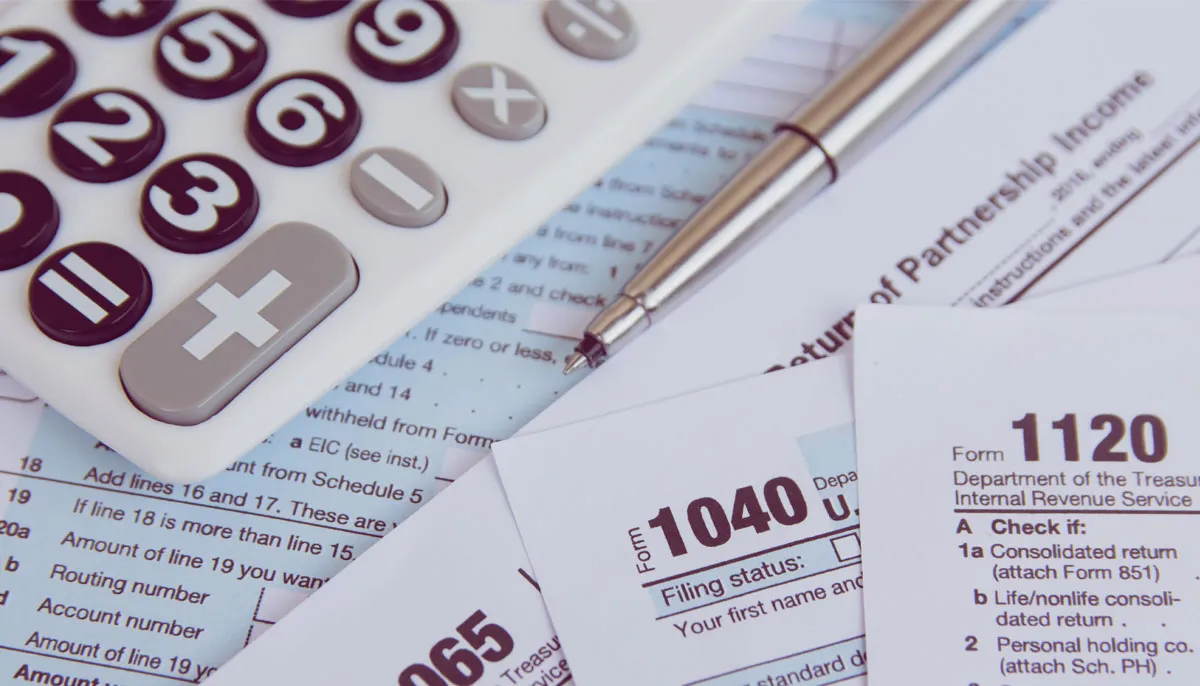- Quick Summary
- Understanding the Federal Reserve’s Role in Mortgage Rates
- January 2025 Interest Rates
- Higher Monthly Payments Mean Less House
- Smaller Loan Amounts
- Condos and Smaller Homes Built
- Lower Housing Inventory
- The Impact on Different Types of Homebuyers
- How to Deal with High Interest Rates
- Long-Term Considerations for Homebuyers
- Conclusion

- Quick Summary
- Understanding the Federal Reserve’s Role in Mortgage Rates
- January 2025 Interest Rates
- Higher Monthly Payments Mean Less House
- Smaller Loan Amounts
- Condos and Smaller Homes Built
- Lower Housing Inventory
- The Impact on Different Types of Homebuyers
- How to Deal with High Interest Rates
- Long-Term Considerations for Homebuyers
- Conclusion
The one to four interest rates for buying a home are gone. In the last few years, we’ve seen the benchmark interest rate and other interest rates climb continuously. The argument is that high interest rates help curve inflation. But there are possible consequences to high interest rates. We’re going to explore how interest rate hikes are impacting home buyers. We’ll also delve into what homebuyers can do about it.
Understanding the Federal Reserve’s Role in Mortgage Rates

The Federal Reserve plays a pivotal role in shaping mortgage rates in the United States. While the Fed doesn’t directly set mortgage rates, its decisions on monetary policy have a profound impact on the mortgage market. The Fed’s primary tool for influencing mortgage rates is the federal funds rate, which is the interest rate at which banks and other depository institutions lend and borrow money from each other overnight.
When the Fed lowers the federal funds rate, it can lead to a decrease in mortgage rates, making it cheaper for homebuyers to borrow money. Conversely, when the Fed raises the federal funds rate, it can lead to an increase in mortgage rates, making it more expensive for homebuyers to secure a mortgage. This is because changes in the federal funds rate influence the overall cost of borrowing money in the economy, including the rates on mortgages.
The Fed’s decisions on monetary policy are guided by its dual mandate of promoting maximum employment and price stability. When the economy is growing rapidly, the Fed may raise interest rates to slow down the economy and prevent inflation from rising too high. On the other hand, when the economy is slowing down, the Fed may lower interest rates to stimulate economic growth and prevent deflation. These decisions have a ripple effect on the entire economy, including the housing market, as they influence the cost of borrowing and the availability of credit.
January 2025 Interest Rates
The interest rate has surged in the last four years. The Fed raises interest rates as a strategic move to control inflation, which has led to the recent surge in the 30-year interest rate. In 2023, the 30-year interest rate surged to eight percent. While the 2019 30-year interest rate was 4.1 percent.
Although in January 2025, the interest rate has fallen to 7.02 percent, it’s still almost double 2019. Let’s start with how it impacts home buyers.
Higher Monthly Payments Mean Less House

High interest rates take away your purchasing power. Purchasing power is the amount of money you can afford to borrow. For those with adjustable rate mortgages, higher interest rates can lead to increased monthly payments, further reducing purchasing power. So, when rates are higher, if you don’t have a hefty down payment, you’ll need to buy a less expensive house. This usually means a smaller house.
That’s because you may be unable to afford or even qualify for a mortgage.
In 2025, the median home price in the U.S. is currently $423,200. A 30-year mortgage without a downpayment would give you a monthly payment of $2815.56.
You may have to downsize your home to make the monthly payment.
For example, if you want to buy a $250,00 house with a 30-year loan, your monthly mortgage payment will be $1,663.26.
Can you afford these payments? The average salary in the U.S. is $68,125, and the minimum salary is $32,916. A 30-year mortgage at seven percent may be a stretch.
Smaller Loan Amounts

Lenders may offer smaller loan amounts. However, fed rate cuts can sometimes lead to more favorable loan terms, potentially increasing the loan amounts offered by lenders. They base the amount they will lend on your debt-to-income ratio and monthly payment. That means they calculate how much debt you owe versus how much you earn.
If your debt is a high percentage, you may not be able to qualify for a larger loan. In fact, you may not qualify for a loan at all.
Condos and Smaller Homes Built

Home builders often build smaller homes to take advantage of lower construction costs. For buyers considering fixed rate mortgages, the stability of monthly payments can make smaller homes and condos more attractive options. These savings may be passed onto you. But you’ll have to settle for less square footage.
Townhomes and condos will be more affordable. They often come in at a lower price than a stand-alone house, making it more attractive to buyers.
Lower Housing Inventory

Many current homeowners bought when interest rates were low. The impact of the Fed's rate cuts on mortgage rates has also influenced homeowners' decisions to hold onto their properties. They are reluctant to give up that low rate by selling and buying another home at a higher interest rate.
That means more people are holding onto their homes. The result is an existing home shortage.
New home construction increased in 2024. However, because of the high cost of building materials, new home prices are higher than the past years.
Add that to the higher interest rates, and you may be unable to afford the monthly payment.
The Impact on Different Types of Homebuyers

The impact of the Fed’s rate cuts on different types of homebuyers can vary significantly. For first-time homebuyers, lower mortgage rates can be a game-changer. Lower rates can make it easier to qualify for a mortgage and afford a home. With reduced mortgage rates, first-time buyers might qualify for a larger loan, enabling them to purchase a more expensive home. Additionally, lower rates can reduce the monthly payment on a mortgage, making homeownership more accessible.
Existing homeowners also stand to benefit from the Fed’s rate cuts. Lower mortgage rates present an opportunity to refinance existing mortgages at a lower interest rate. This can lead to a reduced monthly payment and significant savings on interest over the life of the loan. Moreover, lower mortgage rates can increase the value of existing homes, making it easier for homeowners to sell their property and upgrade to a more expensive one.
For investors, the impact of lower mortgage rates can be substantial. Reduced rates can enable investors to purchase more expensive properties, potentially increasing their rental income and providing a higher return on investment. Additionally, lower mortgage rates can boost the value of investment properties, making it easier for investors to sell their properties and realize a profit.
How to Deal with High Interest Rates

You may feel it’s hopeless, but there are several ways you can increase your chances of qualifying for a loan without breaking the bank. Understanding the role of the central bank in setting interest rates can help you navigate the complexities of the mortgage market.
Adjust Your Budget
Start with adjusting your budget. Consider reallocating funds from your savings accounts to cover higher monthly payments. We’ve shown you that higher interest rates mean higher monthly payments. Reduce your target price. You may not be able to afford the monthly payment for that 3,000-square-foot home.
Besides, you don’t just have to worry about high-interest loans; there’s also taxes and maintenance. So, shoot a little lower when looking for a house.
Improve Your Credit Score
The biggest factor that goes into qualifying for a loan or getting a lower interest rate is your credit score. A higher credit score can help you secure a better fed rate, reducing your overall borrowing costs. The higher your score, the better rate you can secure. In fact, if you have an iffy or low credit score, you probably won’t qualify for a mortgage.
Pay down your debt and avoid opening new lines of credit. Do you really need that extra credit card?
Ensure you pay all your bills on time.
Larger Down Payment
Save for a larger down payment. Even a reduction of half a percentage point in your interest rate can lead to significant savings over the life of the loan. This reduces the amount you must borrow and offsets the higher interest rate. It also shows the lender that you’re a low-risk borrower.
Explore Loan Assistance
Many states offer first-time buyers’ programs or down payment assistance. A recent fed's rate cut has made some loan assistance programs more accessible to first-time buyers. These resources can ease the financial burden of buying a home. For example, the Federal Housing Administration (FHA) will help those eligible with a low-down payment loan.
Many lenders offer first-time buyers assistance through grants and affordable loans. Also, check locally to explore if there are any programs available that you qualify for.
Long-Term Considerations for Homebuyers

When deciding whether to buy a house now or wait, it’s essential to consider long-term implications. While lower mortgage rates may make it easier to afford a home in the short term, it’s crucial to think about the potential for interest rates to rise in the future. If interest rates increase, it can lead to higher monthly payments on a mortgage, making it more expensive to afford a home. Additionally, rising interest rates can decrease the value of a home, complicating future resale efforts.
Another long-term consideration is the potential for changes in the housing market. A decline in the housing market can reduce the value of a home, making it more challenging to sell the property in the future. Additionally, a downturn in the housing market can make it more difficult to refinance a mortgage or sell a home.
In conclusion, the Federal Reserve’s role in shaping mortgage rates is significant, and its decisions can have a profound impact on the housing market. While lower mortgage rates may make it easier to afford a home in the short term, it’s essential to consider long-term factors, such as the potential for interest rates to rise and changes in the housing market. By keeping these considerations in mind, homebuyers can make more informed decisions and better navigate the complexities of the mortgage market.
Conclusion
Although interest rates are high, it’s not all gloom and doom. You can maneuver yourself into a sound position when applying for a loan. You’ll need to monitor your credit score and explore loan assistance. Ensure that when looking for a home, you're realistic as to what you can afford.






